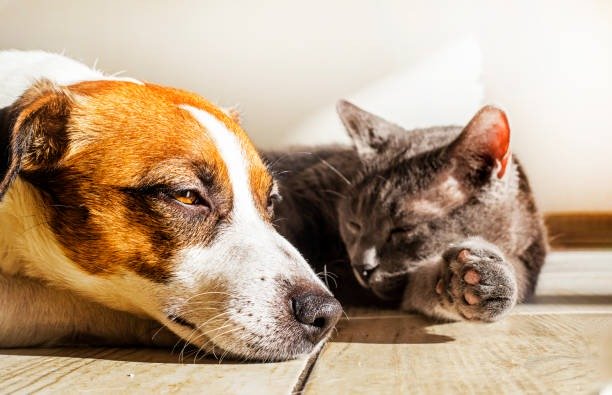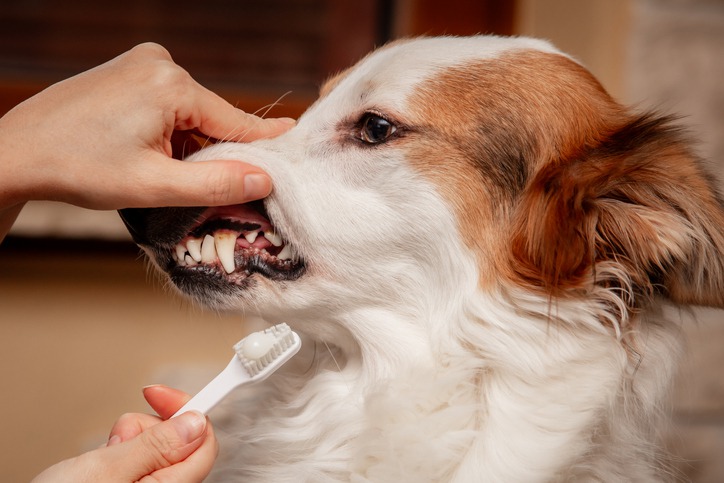It’s a nightmare for any pet owner when their beloved animal falls ill unexpectedly. Scheduling routine check-ups with your vet is essential, but what should you do when your pet gets sick outside these regular visits? Don’t fret; here are some important steps to take when your furry companion needs swift care.
Signs Your Pet Might Be Sick
First, you’ll want to identify if your pet is genuinely ill. Some common signs include:
-
Loss of appetite or sudden weight changes
-
Excessive drinking or urination
-
Lethargy or noticeable changes in behavior
-
Diarrhea or vomiting
-
Coughing or difficulty breathing
-
Discharge from eyes or nose
-
Itching or unusual odors
It’s crucial to keep up with routine exams, even if your pet seems healthy. These exams help catch potential health issues before they become serious. For more information on maintaining a routine that includes regular check-ups, click here.
Initial Steps to Take
So, you’ve noticed some signs indicating that your pet might be under the weather. Here’s what you need to do immediately:
-
Stay Calm: Panicking won’t help your pet or yourself. Stay calm and focused.
-
Observe and Note: Document symptoms, behavior changes, and any possible causes.
-
Limit Their Activity: Keep your pet comfortable and limit their physical activity.
-
Check for Injuries: Look for visible injuries, swellings, or anything unusual.
When to Call an Emergency Vet
Sometimes, the situation is urgent and requires immediate veterinary attention. You should call an emergency vet if your pet:
-
Has difficulty breathing
-
Shows signs of severe pain
-
Has ingested a toxin or foreign object
-
Is unresponsive or has a sudden collapse
-
Has severe bleeding or trauma
Locating Emergency Veterinary Services
Find the nearest emergency vet clinics before you need them. Often, a quick online search or an app can help you locate the nearest emergency care services for your pet. Keep these contacts handy.
Setting Up a Temporary Home Care Plan
In case the vet’s clinic is closed or it’s late at night, you may need to provide some initial care at home. Here’s how to enhance your pet’s comfort:
-
Isolate them from other pets to prevent the spread of possible infections.
-
Keep them warm and hydrated.
-
Use a soft bed and clean the area where they rest frequently.
-
Avoid feeding them from your regular meals; use specialized pet foods.
Identifying Common Pet Illnesses
Knowledge is power. Understanding common pet illnesses can help you better recognize symptoms and take quick action. These include:
-
Parvovirus in dogs
-
Feline leukemia in cats
-
Skin allergies and mange
-
Gastrointestinal issues
-
Respiratory infections
Keeping up with cat & dog vaccinations in New Ulm, MN, is a proactive measure to ensure your pet’s health and well-being. Always stick to the vaccination schedule recommended by your vet.
Managing Chronic Conditions
If your pet has a pre-existing chronic condition like diabetes or arthritis, you should have a clear management plan. Regular monitoring and timely medication are crucial. Always have their medication in stock and never miss a dose.
Exploring Holistic Remedies
Some pet owners find relief through holistic remedies like herbal treatments, acupuncture, and specialized diets. While these should never replace professional medical advice, they can complement traditional treatments.
Dental Health in Pets
Oral health is often overlooked but is vital for a pet’s overall health. Routine dental cleanings can prevent severe issues like gum disease and tooth loss. For those seeking quality pet dental services in New Ulm, MN, there are several professional options available locally.
Insurance and Emergency Funds
Having pet insurance or an emergency fund can relieve the financial stress of sudden vet visits. Consider a plan or setting aside some money each month, just in case.
Preparing a Pet First Aid Kit
Having a well-stocked pet first aid kit can be a lifesaver in emergencies. Here’s what your kit should include:
Basic Medical Supplies:
-
Sterile gauze pads and bandages
-
Adhesive tape
-
Antiseptic wipes
-
Tweezers
-
Scissors
-
Disposable gloves
-
Digital thermometer (specifically designed for pets)
Medications:
-
Hydrogen peroxide for inducing vomiting (only under vet guidance)
-
Antihistamines for allergic reactions (consult your vet for proper dosage)
-
Activated charcoal for toxin absorption
-
Saline solution for wound and eye cleaning
Additional Items:
-
Emergency contact numbers for your vet and nearest emergency clinic
-
A pet first aid book or guide
-
Muzzle to prevent biting when your pet is scared or in pain
-
Blanket for warmth and as a stretcher if needed
-
Waterproof container to keep all items dry and organized
By assembling a pet first aid kit, you’re taking an important step in ensuring immediate care can be provided, potentially saving your pet’s life while you seek professional help.
Final Thoughts
If your pet is sick outside of their regular check-ups, quick but calm action is needed. Recognize the signs of illness, provide initial home care, consult an emergency vet if necessary, and keep up with preventive care. Remember, it’s better to be prepared and informed.
Being a pet owner is a rewarding experience that comes with its challenges, including dealing with unexpected illnesses. However, armed with knowledge and a solid plan, you can ensure your furry friend gets the best care possible.



